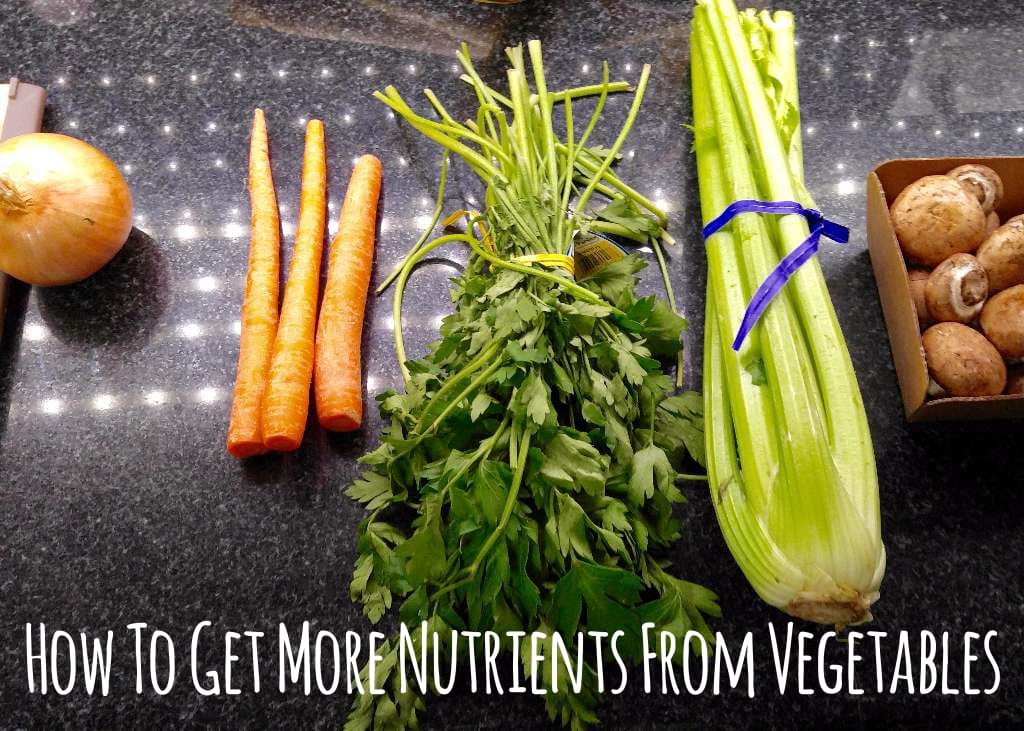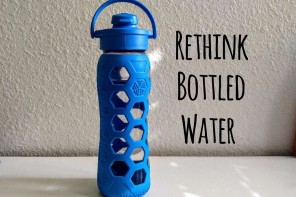The cold weather has meant that most of the meals that we eat are hot. I like to include vegetables in every meal, so we have been cooking nearly all of them. We try to listen to our bodies, and cold, raw vegetables just don’t feel right during the middle of winter. But no matter how I prepare the vegetables, I try to consider the best way to retain and access nutrients, which can be a bit complicated.
How not to cook vegetables:
When vegetables are totally submerged in water, the exposure to heat plus the presence of water pulls out water soluble vitamins and minerals. If these vegetables are in a soup or the water is consumed, this is only a minor issue (if they have not been cooked very long). But when the water is dumped and the vegetables removed, they are missing a great deal of the vitamins that they had when raw.
Vegetables that have been canned or left out for prolonged periods as well as those that are over cooked also have lost a great deal of their vitamins. The greater the exposure to air, water, and/or heat, the more that is lost. This is why frying is also a terrible way to eat vegetables if you want to gain a decent amount of vitamins from them. The high heat breaks things down very quickly.
How to maximize nutrients from vegetables:
The best way to get the maximum amount of nutrients from plants is to eat a varied diet of raw and cooked vegetables. There are some nutrients and vegetables that are better cooked, and others raw. For example antioxidants like beta-carotene and lycopene are easier for the body to absorb when tomatoes and carrots are cooked. Cabbage, asparagus, mushrooms, and spinach also release more antioxidants when cooked. But weaker nutrients like vitamin C are destroyed when cooked.
When cooking vegetables, there are a variety of methods that help to retain vitamins. Steaming, roasting, cooking in a pan, and even microwaving are all great ways to cook a vegetable with minimal nutrient loss. The key is to avoid overcooking, which is how most vegetables are depleted of nutrients. Overcooked, soggy, or burnt vegetables aren’t very appealing anyway.
Choose vegetables wisely.
How vegetables start out before you cook them also matters. The vegetables that you buy at the store have been picked long before you buy them. It takes a decent amount of time to get them from the farm to you, so producers can’t risk spoiling. To avoid this, fruits and vegetables are usually picked before they are ripe. Picking them when they are still unripe means that they have not had the proper time to absorb and develop all of their vitamins and minerals. And as they sit out, or if they have been canned/frozen too long, they are loosing nutrients every day. Their natural sugars are also breaking down, which is why fresh produce tastes so much better.
What has the maximum amount of nutrients? Organic produce has more antioxidants because the plant uses them as their own natural defenses, whereas conventional produce have no need for this. Farmer’s markets sells produce very quickly after picking, so the nutritional content is much higher than what you find at the grocery store. Also, frozen vegetables are typically high in nutrients because they have been frozen while freshly picked and ripe.
To summarize…
This can all be a bit confusing. Of course, conventional grocery store vegetables are better than none at all. But if you want to maximize nutrient intake, these are the basics:
- Eat a variety of vegetables. Eat some cooked and some raw.
- Never overcook, boil, or fry vegetables.
- When cooking vegetables, stick to: steaming, pan cooking, roasting, blanching, and microwaving.
- Buy vegetables that are: organic, fresh (like from a farmer’s market), or frozen.
However you eat them, raw or cooked, eat those veggies!





